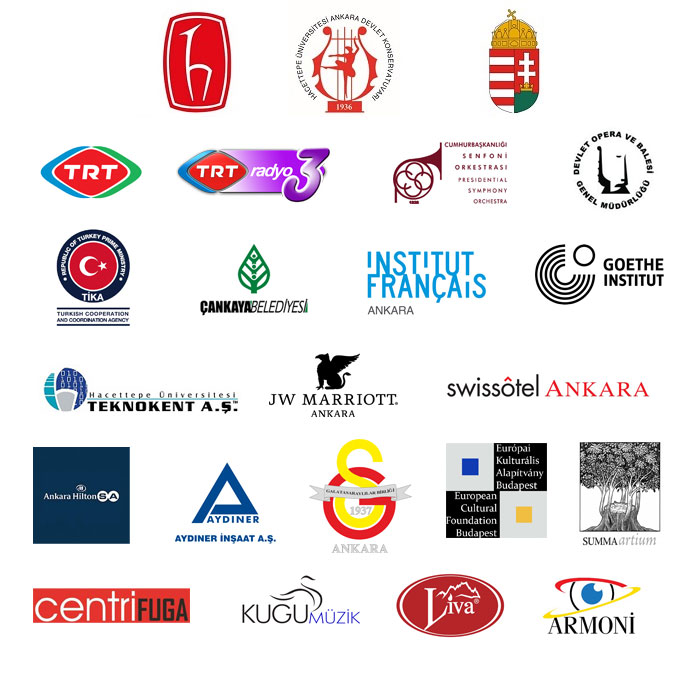




























János Sipos, Macaristan
|
Macar Bilimler
Akademisi-Müzikoloji Enstitüsü kıdemli üyesi olan Dr. Sipos ayrıca Macar
Sanatlar Akademisi üyesi,
Uluslararası Geleneksel Müzik
Konseyinin Macaristan temsilcisi ve aynı zamanda F.Liszt Müzik
Akademisinde öğretim üyesidir. 1987den itibaren 100
ayı aşkın bir süre içerisinde,
farklı kökenden gelen Türk halklarına
ait yörelerde bulunmuş ve 10.000den fazla şarkı toplamıştır. Bu
çalışmaları kapsamında Anadolu (1987-2012 bir çok kez),
Trakya (1999-2003), Kazakistan
(1995-1997), Azerbaycan (1999,2004,2005), Kırgızistan (2002-2004),
Türkmenistan (2001), Kafkas Karaçayları (2000), Türkiye de yaşayan
Karaçaylar(2001,2002,2005)
ve Amerikan yerlileri (2004-2005)
sayılabilir. 1978 yılında, Szeged
A.Jozsef Üniversitesinde, Matematik
dalında yüksek lisansını tamamlamıştır. Tezinin konusu, Halk Müziği
Ritimleri Üzerine
Bilgisayar Destekli Analizdir. Yine aynı
üniversitede, 1997de
doktora derecesini
Dilbilim-Etnomüzikoloji alanında almıştır. Tezinin başlığı ise Daha
Geniş Materyaller Işığında Bela Bartokun Anadolu Araştırmalarıdır.
Dr.Sipos, 1998-2001
yılları arasında Budapeşte Doğu Arşivinde araştırma görevlisi olarak
çalışmıştır. Bunun yanı sıra, Szeged JATE Üniversitesinde( 1993-1997),
Ankara Üniversitesi Macar Dili Bölümünde (1988-1993) eğitimci olarak
görev almış, 2007den bu yana da
F.Liszt Müzik Akademisi Halk Müziği
Bölümünde öğretim üyesi olarak çalışmaktadır. Üyesi olduğu bilimsel kuruluşlar şunlardır: Uluslararası Geleneksel Müzikler Konseyi
Macaristan temsilcisi Uluslararası Geleneksel Müzikler Konseyi, Türkçe
konuşan halkların müzikleri çalışma grubu kurucu üyesi Etno-müzikoloji Avrupa semineri üyesi Uluslararası Kodály derneği : László Vikár halk
müziği araştırma forumu kurucu üyesi. János Sipos un kitaplarından bazıları: ● Török Népzene I. (Turkish Folk Music 1),
Budapest, Institute for Musicology of the HAS, 1994. 412 p. ● Török Népzene II. (Turkish Folk Music 2),
Budapest, Institute for Musicology of the HAS, 1995. 426 p. ● In the Wake of Bartók in Anatolia, Budapest,
European Folklore Institute 2000. 350 p. (Bibliotheca Traditionis
Europeae 2.) ● Kazakh Folksongs From the Two Ends of the
Steppe, Budapest, Academy Publishing House, 2001. 302 p. ● Azeri folksongs - At the Fountain-Head of
Music, Budapest, Academy Publishing House, 2004. 623 p. ● Comparative Analysis of Hungarian and Turkic
Folk Music, TIKA (Türk İşbirliği ve Kalkınma İdaresi Başkanlığı) and
Ankara Hungarian Embassy, 2006, Ankara, 320 p. ● Azerbaycan El Havaları - Musiqinin İlk
Qaynaqlarında, Bakû, Azerbaycan, 2006, 610 p. ● Bartók'un izninde Anadolu'da, Pan Yayinevi,
Istanbul, 2009, p. 225 ● The Psalms and the Folk Songs of a Mystic
Turkish Order with DVD attachement, Academy Publishing House Budapest,
2009, p. 710. ● A Kaukázusi karacsájok népzenéje (Folk Music of
the Karachays in the Caucasus Mountains) with DVD attachement,
LHarmattan Publishing House, Budapest, 2012 ● Shaman Songs (with M. Hoppal), International
Society for Shamanic Research, Budapest, 2012 ● Kyrgyz Folksongs, Budapest: lHarmattan
Publishing House, 2014. Some Articles of János Sipos (2007-2009) ● A Musical Map of Different Turkic-Speaking
Peoples as Based on Field Work from 1936 until the Present, In:
International Review of Turkish Studies, Vol.: 2, Issue: 4, Utrecht -
The Netherlands: Institute for Turkish Studies, 2012, pp. 46-61
●
A Musicological Note on the Blessing of the Sakha Healer, Shaman, Vol.
21, Nos. 1 and 2, Spring and Autumn 2013, Institute of Ethnology of the
Hungarian Academy of Sciences, Molnar@Kelemen Oriental Publisher,
Budapest, 2013, pp. 192-196 ● From the Spiritual to the Profane and Back: the
Relationship Between Folk Religion and Folk Songs of some Turkic People,
In: International Conference/Workshop Popular Culture in Turkic Asia
and Afghanistan: Performance and Belief, Cambridge, Anglia, 2012,
Camberley: Cambridge, Cambridge Univ. Pr., pp. 18-19. ● Trakya Bektaşilerinin Tasavvufî ve Halk Müziği
İle Anadolu Halk Müziği Arasındaki Bağlantılar, In: Doğumunun 800.
Yılında Hacı Bektaş Veli Sempozyumu Bildiriler, 17-18 Ağustos, 2009,
Nevşehir, pp. 235-244 ● On folk music research and some possible goals
of the IKS László Vikár Forum, In: Intersections: Music, Tradition and
Education, Coordinadores: Jerry-Louis Jaccard and Hilda Mercedes Morán
Quiroz, C o l le c c i ó n Estudios del Hombre, Serie Antropología,
Universidad de Guadalajara, 2011, Ed. by Centro Universitario de
Ciencias Sociales y Humanidades, Visite nuestro catálogo:
www.cucsh.udg.mx, pp. 15-26. ● Where Bartók Left Off: Researching Turkic
Elements in Hungarian Folksong, In: Intersections: Music, Tradition and
Education, Coordinadores: Jerry-Louis Jaccard and Hilda Mercedes Morán
Quiroz, C o l le c c i ó n Estudios del Hombre, Serie Antropología,
Universidad de Guadalajara, 2011, Ed. by Centro Universitario de
Ciencias Sociales y Humanidades, Visite nuestro catálogo:
www.cucsh.udg.mx, 67-110. ● Trakya Bektaşi Ezgilerin Siniflandirilmasi ve
Avrasya Çerçevesi, In Alevilik-Bektaşilik Araştırmaları Dergisi 2, 2010,
Köln: Alevi-Bektaşi Kültür Enstitüsü, pp.35-46, On Internetes:
www.abkedergi.de/2_tr.asp ● Categorization of Thrace Bektashi Melodies and
Their Relations to Eurasian Melody Styles, In: Forschungszeitschrift
über Alevitentum und Bektaschitentum , Heft: 2, Winter 2010, Köln: Önel
Verlag ● Is it possible to use the maqam conception in
analyzing and classifying vocal monophonic folk music material?
Preceedings of the International Musicological Symposium, "Space of
Mugham" March 2009, Serk-Qerb, Baku, pp. 397-407. ● A Lament from Bartóks Anatolian Collection and
its Musical Background, Studia Musicologia, Vol. 48, Numbers 1-2, March
2007, pp. 201-213. ● A comparative research on the folk music of
Turkic people - from Béla Bartók to our days, Johannes
Gutenberg-Universität, Turkologie, Seminar für Orientkunde, 2007, Mainz,
Germany. ● Basic musical forms in a Bektashi community,
International Workshop and Conference Music of the Turkic-speaking
world, performance and the Master-Apprentice system of oral
transmission, 2007, SOAS, University of London, Great-Britain. ● Similar melody Styles in Kazakh and Hungarian
Folk Music, In Traditional Music of Turkic People: Present and Future,
pp. 249-266, Ministry of Culture, Kazakhstan, Kizilorda, 2006. ● Egy most felfedezett belső-mongóliai kvintváltó
stílus és magyar vonatkozásai, Ethnographia 112 (2001 [2004!]) 1-2:
1-80. ● Talking to the Ongons: The Invocation Text
and Music of a Darkhad Shaman, Shaman, Budapest, Molnár & Kelemen
Oriental Publishers, 12 (2004 Spring/Autumn) 12: 25-62. (with Á.
Birtalan). ● The Central Style of Azeri Folksongs, Journal
of Turkic Civilization Studies, No. 1 (2004), Kyrgyz-Turkish Manas
University, Kyrgyz-Turkish Manas University Publication: 62, Center for
Turkic Civilization Studies Publication: 7, Bishkek, 2004. ● Report on my Expedition in the Caucasus, In
Néptörténet-Nyelvtörténet. A 70-éves Róna-Tas András köszöntése.eds. L.
Károly and É. Kincses Nagy, Szeged, 2001: 155-184. ● Similar musical structure in Turkish,
Mongolian, Tungus and Hungarian folk music, In Historical and Linguistic
Interaction between Inner-Asia and Europe (ed. Á. Berta), Szeged, 1997:
305317. ● Connection between Turkish songs having
different structures, In The Fifth International Turkish Folklore
Congress, Vol III. Ankara, 1996: 5665. Some conferences:
●
4th Symposium of the Music of the Turkic Speaking World ICTM Study
Group (Turkic World and Neighbours - Similarity and Differences in
Music), 18-20 April, 2014, Istanbul, Turkey, Are There Common
Traditional Vocal Folk Music Styles In The Music of The Turkic Speaking
Peoples?
●
42nd World Conference of the ICTM, org. by ICTM & Shanghai Conservatory
of Music, Shanghai, China, 10-18 July, 2013, On the singing and dancing
of some Asian Sufi communities and Shamans ● Third Symposium of the ICTM Study Group for
Multipart Music, org. by ICTM Study Group for Multipart Music és az MTA
BTK ZTI, MTA BTK ZTI Bartók Room, 12-16 September, 2013, Traces of
Multipart Music in Some Turkic-Speaking Communities ● Musical Geographies Of Central Asia -
International Conference, org. by The Middle East and Central Asia Music
Forum, the Institute of Musical Research, School of Advanced Study in
association with School of Oriental and African Studies, University of
London, 2012 16-17 May, 2012, London, A Musical Map of Different
Turkic-Speaking Peoples as based on Field Work from 1936 until the
Present
●
International Conference/Workshop Popular Culture in Turkic Asia and
Afghanistan: Performance and Belief, 1-2 December, 2012,
Cambridge/U.K., Org. University of Cambridge, British Council and
Türksoy, From the spiritual to the profane and back: the relation of
folk religion and folk songs of some Turkic people. ● Hungaroloji Kongresi, Dil Tarih ve Coğrafya
Fakültesi, Ankara Üniversitesi, 24-28 October, 2011, Finnugor nyelv
versus török-mongol népzene ● VIII. International Turkish Folk Culture
Congress, Antalya, 21-24 November, 2011, Türk Halklarının Halk Müziğini
Araştıran ve Karşılaştıran Bir Grubun Oluşturulmasına Dair bir Öneri ●Second Meeting of the ICTM Study Group On Music
Of The Turkic-Speaking World, topic: Vocal Traditions of Free-metric
Singing in Eurasia, Place: Berlin Free University, Institute for
Turcology, Berlin, 2010. 17-2 Mart 2010, Free-metric Singing among
Azerbaijani People Folk Song and Mugham ● 11th International Congress for Fenno-Ugric
Studies, Fenno-Ugric Peoples and Languages in the 21th century, a
Pázmány Péter Katolikus Egyetem campusa, Piliscsaba, 9-14. Aug. 2010,
Néhány gondolat a magyar népzene finnugor és török kapcsolatairól ● XXVI. European Seminar in Ethnomusicology
(ESEM), szervező: MTA ZTI, helyszín: Bartók terem, Budapest, 22-26
Sept., 2010, The Music of the Karachay People ● Magyarország-Azerbajdzsán: a kultúrák
párbeszéde, MTA Néprajzi Kutatóintézet és az Azerbajdzsáni Nagykövetség,
17-19 Nov., 2009, Budapest., Azerbajdzsáni mugam és népzene ● XXVI European Seminar for Ethnomusicology,
Institute of Musicology of the Warsaw University, Varsó, 17-21 Sept.,
2008, The Musical Repertoire of a Mystic Islamic Order and its Relation
to Some Other Folk Music's ●"Technical challenges and developments in 21st
century folk music archiving ZTI konferencia, MTA ZTI, Budapest, 12
July, 2008. Using artificial intelligence for comparative musicology on
Eurasian folk music - In the wake of a special musical structure ● ICTM Conference, Music of the Turkic Speaking
People Study Group, July, 2007,Vienna, Tradition and revival: how do
musical styles of Karachays living in Turkey change? ● Conference on Music in the World of Islam,
7-11th August, Assilah, Morocco, 2007, In the wake of Bartók similar
musical layers in Europe and Asia ● The Music of the Turkic Speaking People - ICTM
Study Group founding conference, SOAS, 3-4th February, 2006, London, The
Preservation of the Musical Heritage of the Turkic Speaking World by
Computer Aided Comparative Programs ● Seminar für Orientkunde, Johannes Gutenberg
Universität, July, 2006 Mainz, Germany, A comparative research on the
folk music of Turkic people - from Bartók to our days. ● School of Music, 4th January, 2005, Provo,
Utah, USA, Musico-linguistic trail of the Turkic Element of the
Hungarian People. ● The 38th World Conference of the International
Council of Traditional Music, 3-9 August, 2005, Sheffield, U.K., The
Religious Music and Dances of the Bektashis Living in Thrace ● 6th International Congress on Turkish Culture,
Atatürk Culture Center, 21-26 November, 2005, Ankara, About Some Similar
Melody Styles in Europe, Turkey and Asia ● The 37th ICTM World Conference, 4-11 January,
2004, Fuzhou & Quanzhou, China, An Inner Mongolian pentatonic
fifth-shifting style and its relevance to Hungarian and Volga-Region
folk music Fieldworks: Backed by OTKA (=Hungarian Scientific Research
Fund) - 01/01/1999-31/12/2002, Comparative research on
Kazakh-Hungarian-Anatolian folk music and folk text, 029037 OTKA -
Fieldwork in Kazakhstan, Turkey and the Caucasus -01/01/2003-31/12/2006, Comparative research on
Karachay-MalkarKyrgyzAzeriHungarian folk music and folk text, 42461
OTKA - 01/07/2007-30/09/2011, The eastern connection
of the Hungarian folk music The folk music of the Karachay people and
Bektashis living in Turkey, 67997 OTKA - 01/02/2006-31/08/2015, Computer aided research
on the eastern relations of the Hungarian folk music, 81954 OTKA
|
